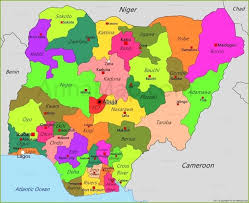Assistant Director of Administration of the Chartered Institute of Logistics and Transportation (CILT) Mr Reynold Shodeinde has called for the speedy approval of the National Transport Policy (NTP) by the Federal Executive Council (FEC). Shodeinde told the News Agency of Nigeria (NAN) on Wednesday, that the policy can guide the planning and development of transport activities in a systematic and sustainable manner for the social and economic development of Nigeria. He was speaking against the backdrop of Nigeria’s 61st Independence on Oct. 1. “Nigeria does not even have a working document as a National Transport Policy. What we have is a draft, so where do we want to begin, how can transport landscape be organised. “So, this is where the problems are coming from. Apart from operational inefficiency, we have political issues, even at the strategic level, we are not cohesive, we are not organised.
“However, we cannot say that it is totally bad. This is because work has been concluded on the national transport policy, it has now been passed to FEC for ratification and it will soon become a working document. So if we have a national transport policy, at least all these defects and gaps will be addressed and then we will begin to make a headway in the sector,’’ he said. While commending President Muhammadu Buhari’s administration and the Minister of Transportation, Rotimi Amaechi for efforts towards revamping the sector especially the railway sub-sector, Shodeinde said a lot was still needed to drive the sector. Shodeinde said: “Under this regime, transportation has been fair. However, if we keep up the encouraging momentum, then in no distant future it will all be well and transportation will begin to take shape. We can see how they are trying to revamp the railway; we can only say that there is hope because we have seen the beginning, it is just that we are starting too late.
“At this point we should have gone beyond where we are now in terms of transportation. Looking at Abuja for instance, there is no mass transport, all we see is individuals moving around with their private vehicles. The passenger load a BRT bus will carry, if available, is more than what ten cars can carry and this reduces emission, fuel consumption, pollution and one can go on. Since we have started by trying to work on our railway and we have put that national transport policy in place, we hope that things will work better.’’ Shodeinde noted that the contribution of the transportation sector to the country’s GDP was not up to three per cent, which was far below figures obtained in other developing countries of about 16 per cent. According to him, the country has no functioning national airline or shipping line and the road transport is totally an all comers affair without any formidable regulatory framework and control.
He said although there has been concerted efforts on transportation in Nigeria from the beginning, “we could not say we are even close yet to where we ought to be. It is true that the aviation and maritime sub-sectors are better organised than the road and railways, the reasons for this isn’t farfetched. The international affiliation of the former in terms of regulation to the International Civil Aviation Organisation (ICAO) and International Maritime Organisation (IMO) respectively. And for the latter (the railway and roads), which are strictly national in reach and disposition, they are much less resilient and cohesive in policy direction and are in disarray, thus the need for the transport policy.’’ On Dec. 7, 2017, the Federal Government received the final draft document of the proposed NTP. The inter-ministerial committee for the finalisation of the NTP submitted the report to Amaechi, for onward delivery to the FEC for approval. The minister had on Oct. 19, 2017 inaugurated a 19-member committee to finalise the review of the NTP draft for the country’s transportation sector. Amaechi at a briefing said the NTP for Nigeria must be defined by new technologies in transport business, adding that the country cannot afford not to incorporate technology into its transport infrastructure going forward.

